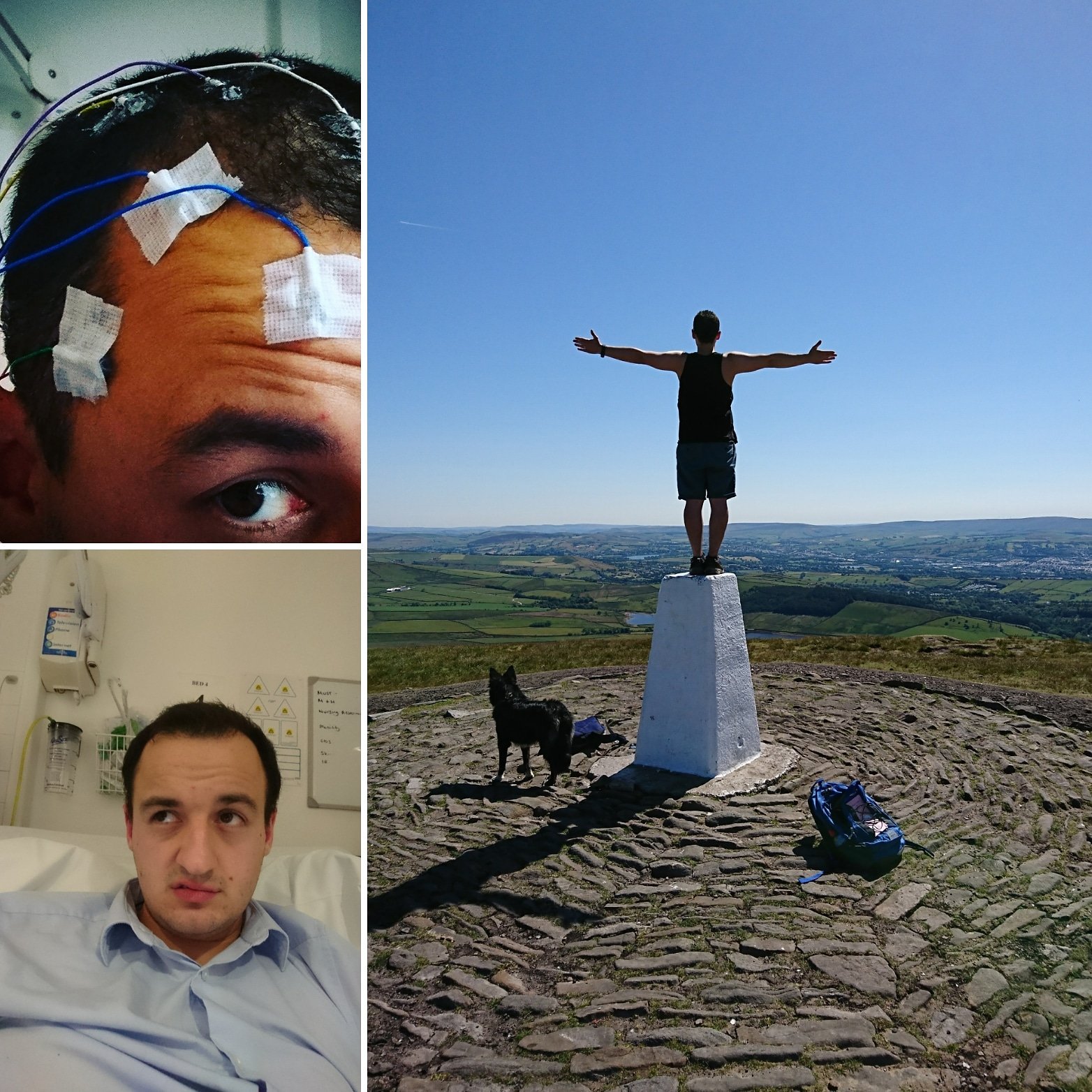Epilepsy: Lee’s Story
This post has been written by Classroom Secrets
When I was 22 years old, I had been a Muay Thai boxer (even getting to spend time in Thailand on this), I had just finished my degree, I enjoyed regular nights out with friends and I had just moved out to Portugal to work in bars and youth hostels. My plan was to spend a year out there before returning to the UK and training to become a primary school teacher, my lifelong ambition and the job I knew I wanted to do even since being in primary school myself. I was just a generally healthy, happy young person with a lot of plans mapped out for my future.
Then, without warning, my days became a blur of confusion and fear. I started ‘fainting’, collapsing and losing consciousness at random intervals. This happened to me multiple times a day. I had no idea what was causing these events and it was terrifying. People were just finding me injured, confused and hurting for no apparent reason. To make matters worse, I was in a foreign country and alone. After injuring myself a few times and becoming increasingly worried (and with the doctors in Portugal advising me I was just rundown and needed a long rest – it was probably just stress or anxiety), I flew home. At first, I had no idea what to do next. I went back to living with my parents who immediately knew something was wrong. I had become withdrawn, quiet and filled with worry and doubt. I didn’t want anyone to think differently of me, and I didn’t want anyone to know that something was ‘wrong’ with me. It took me a while to explain to my family what had been happening to me. Even at this point, I didn’t know what was actually ‘wrong’ with me. A few times my family found me on the floor, injured, confused and often bleeding from the mouth. Nobody was all that clear on what was causing these fainting episodes and doctors were no clearer until a few weeks later, when someone actually witnessed me ‘fainting’. They called an ambulance and were able to explain to the paramedics what they had witnessed. They had seen me stiffen up, collapse and begin shaking on the floor. I had bitten through my own tongue and I remembered nothing.
The doctors in A&E knew immediately I had just had a tonic-clonic seizure. At this point, I still had no idea what these even were. I had further seizures in the hospital and the neurology team were able to confirm that I had epilepsy. What followed was months of trialing different doses of medications. Months of worry and concern. The seizures didn’t stop for a long time. At times, they were even worse. My days became darker, as I stopped talking to any of my friends and I stopped seeing anyone or even leaving the house wherever possible. Days would go by with me hardly saying a word and often in such a blur of confusion and memory lapses that it felt that there was no point in me living if this was how life would be now. On one occasion, I lost all the feeling down the left side of my body. My parents thought I’d had a stroke. What else could even explain a thing like that? In the hospital, they informed us that I had ‘Todd’s paresis’, a condition in which after a seizure, weakness is felt in parts of the body. In my case, I couldn’t feel anything down my left side for about 4 hours, and I had weakness and difficulty walking for the next day. Some seizures can take me days to fully recover from. I can be in pain and have an overwhelming feeling of sadness and emptiness for a couple of days after a seizure. I lose some memories at times, and I struggle to cope with the confusion and pain that follows these seizures.
With every new seizure or every change in medication, I read up all I could on the Epilepsy Action website. I had a lot of trips to hospital, and at times I had lengthy brain scans to contend with which can be fairly traumatic. For some time, it was my only real source of comfort. I read everything I could and went through countless stories from other people who had experienced similar to what I was going through. Many of them had experienced far, far worse. This one site made a huge difference in my life. It gave me back some of the confidence that epilepsy had stolen away from me. It took about a year to get my seizures back under control and to get some level of normality back in my life. I’ve had seizures intermittently ever since, alongside anxiety and panic attacks over the thought that I was about to have seizures or return to being as bad as I had been at previous times.
Once I had some control over my seizures (they were still never perfect – they still aren’t today, ten years later), I decided that I still wanted to pursue my lifelong goal. Epilepsy and seizures or not, I was going to become a primary school teacher. When I did take this step, I was able to create a care plan for university and for schools with the support and guidance from Epilepsy Action. This plan was what made the difference between me staying home in fear and heading out to pursue my dreams. Alongside wonderful support from my wife and my family, Epilepsy Action are a major part of the reason I managed to regain control over my own life. They are a massive part of me being here today to write this blog post.
October 18th is Epilepsy Action’s yearly ‘Tea Break’ fundraiser. Donations on the day help the Epilepsy Action Helpline and website provide expert advice and support to people who need it. Epilepsy Action also helps to beat the loneliness that epilepsy can bring through a network of local and online support groups. Right now, I am happy. I am able to work; I love my job and I can go out and enjoy some of what I used to be able to do. I have to be careful; I have a lot more to consider than I ever had growing up but overall, my life is now much better. This isn’t the case for everyone living with epilepsy. Some people need support, some are just beginning their journeys. One in 20 people will have an epileptic seizure at some point in their life. One in 50 will have epilepsy diagnosed and may go through a similar journey to mine. Around 87 people are diagnosed with epilepsy every day. These are the people the Epilepsy Action Tea Break aims to support. Classroom Secrets are holding their own Epilepsy Action Tea Break on Friday 18th October, if you wish to donate or to find out how to host your own or other ways to help support Epilepsy Action please visit https://www.epilepsy.org.uk/support-our-work/tea-break
By Lee Peckover
Lee Peckover is a proofreading manager at Classroom Secrets. Alongside his work at Classroom Secrets, Lee is an Early Years researcher and is currently completing a part-time master’s degree. Lee has a BA in English Literature and a Post-Graduate Certificate in Early Years and Primary Education (Level 7). He lives in Bradford with his wife Zoe and his seizure assistance dog Albie.





